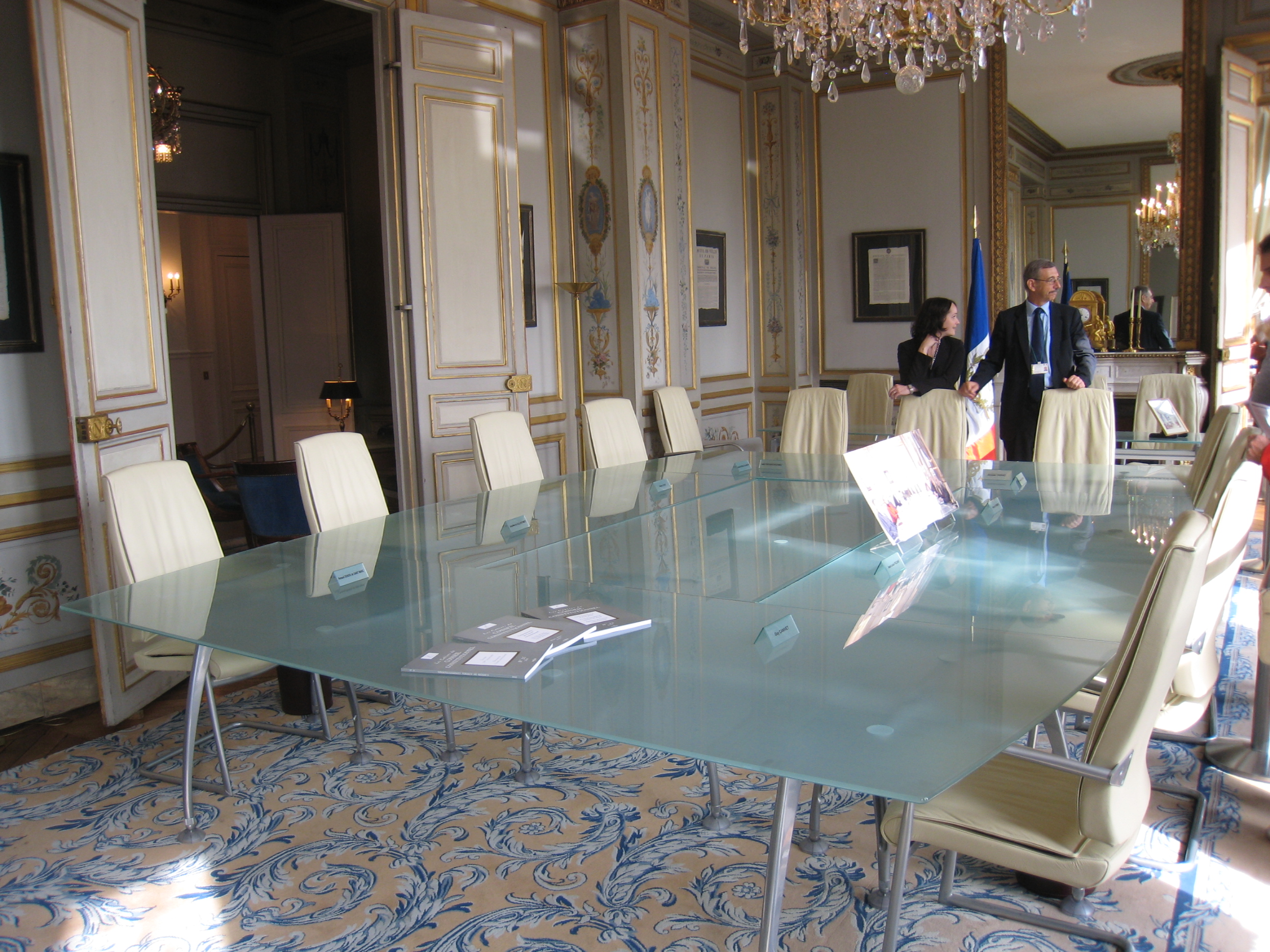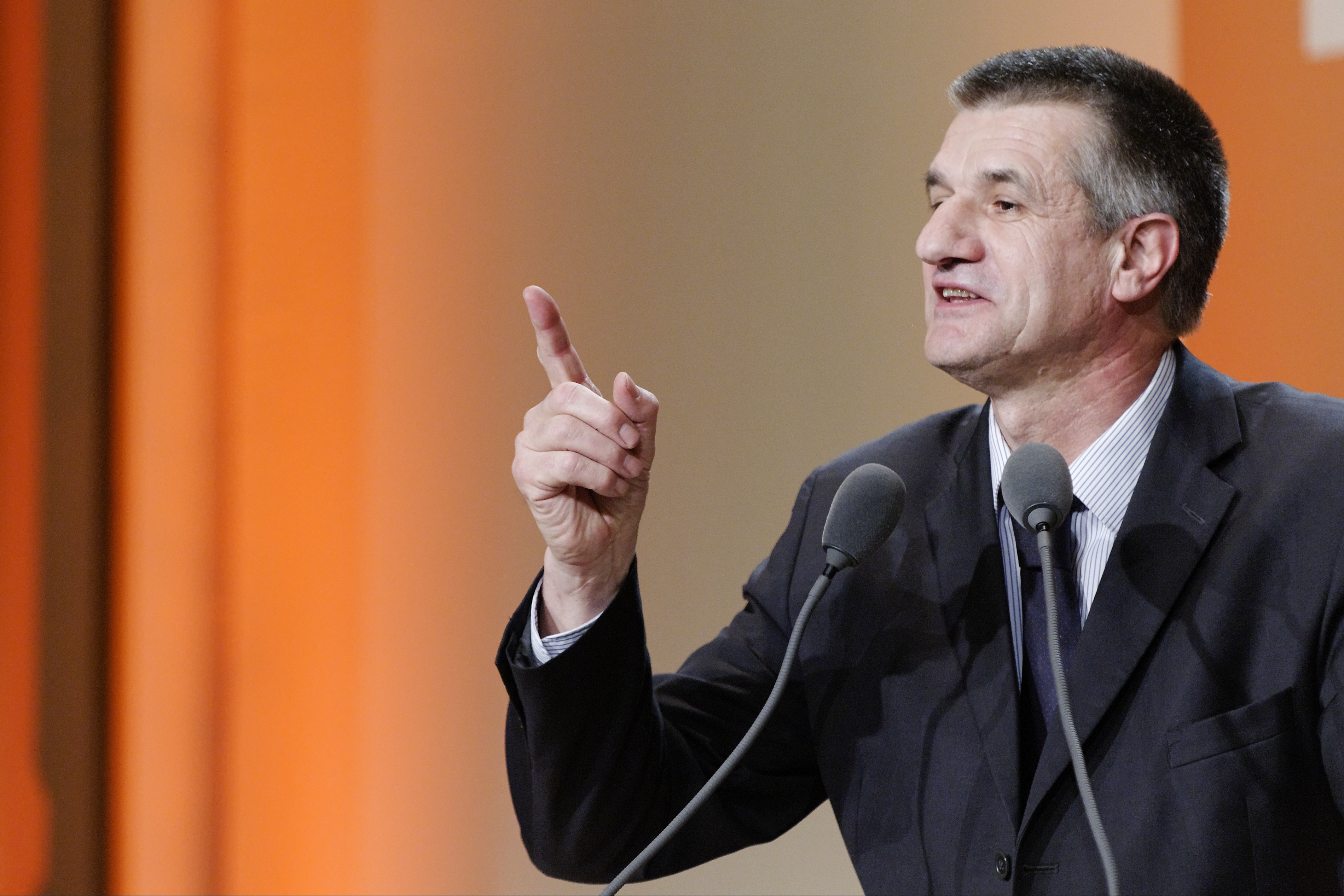|
2007 French Legislative Election
Legislative elections were held in France on 10 June and 17 June 2007 to elect the 13th National Assembly of the Fifth Republic, a few weeks after the presidential election run-off on 6 May. 7,639 candidates stood for 577 seats, including France's overseas possessions. Early first-round results projected a large majority for President Nicolas Sarkozy's Union for a Popular Movement (UMP) and its allies; however, second-round results showed a closer race and a stronger left. Nevertheless, the right retained its majority from 2002 despite losing some 40 seats to the Socialists. Taking place so shortly after the presidential poll, these elections provided the newly elected president with a legislative majority in line with his political objectives – as was the case in 2002, when presidential victor Jacques Chirac's UMP party received a large majority in the legislative elections. It is the first time since the 1978 elections that the governing coalition has been returned after ... [...More Info...] [...Related Items...] OR: [Wikipedia] [Google] [Baidu] |
2007 French Presidential Election
Presidential elections were held in France on 21 and 22 April 2007 to elect the successor to Jacques Chirac as president of France (and ''ex officio'' Co-Prince of Andorra) for a five-year term. As no candidate received a majority of the vote, a second round was held on 5 and 6 May 2007 between the two leading candidates, Nicolas Sarkozy and Ségolène Royal. Sarkozy was elected with 53% of the vote. Sarkozy and Royal both represented a generational change. Both main candidates were born after World War II, along with the first to have seen adulthood under the Fifth Republic, and the first not to have been in politics under Charles de Gaulle. The election result has been interpreted as an example of center squeeze, a kind of spoiler effect common to the plurality-rule family of voting rules, since Sarkozy, a conservative, and Royal, a socialist, eliminated moderate liberal François Bayrou in the first round, despite polls showing a majority of voters preferred Bayrou i ... [...More Info...] [...Related Items...] OR: [Wikipedia] [Google] [Baidu] |
French National Assembly
The National Assembly (, ) is the lower house of the Bicameralism, bicameral French Parliament under the French Fifth Republic, Fifth Republic, the upper house being the Senate (France), Senate (). The National Assembly's legislators are known as () or deputies. There are 577 , each elected by a single-member Constituencies of the National Assembly of France, constituency (at least one per Departments of France, department) through a two-round system; thus, 289 seats are required for a majority. The List of presidents of the National Assembly of France, president of the National Assembly, currently Yaël Braun-Pivet, presides over the body. The officeholder is usually a member of the largest party represented, assisted by vice presidents from across the represented political spectrum. The National Assembly's term is five years; however, the president of France may dissolve the assembly, thereby calling for early elections, unless it has been dissolved in the preceding twelve m ... [...More Info...] [...Related Items...] OR: [Wikipedia] [Google] [Baidu] |
Jacques Chirac
Jacques René Chirac (, ; ; 29 November 193226 September 2019) was a French politician who served as President of France from 1995 to 2007. He was previously Prime Minister of France from 1974 to 1976 and 1986 to 1988, as well as Mayor of Paris from 1977 to 1995. After attending the , Chirac began his career as a high-level civil servant, entering politics shortly thereafter. Chirac occupied various senior positions, including minister of agriculture and minister of the interior. In 1981 and 1988, he unsuccessfully ran for president as the standard-bearer for the conservative Gaullist party Rally for the Republic (RPR). Chirac's internal policies initially included lower tax rates, the removal of price controls, strong punishment for crime and terrorism, and business privatisation. After pursuing these policies in his second term as prime minister, Chirac changed his views. He argued for different economic policies and was elected president in 1995, with 52.6% of the ... [...More Info...] [...Related Items...] OR: [Wikipedia] [Google] [Baidu] |
Constitution Of France
The current Constitution of France was adopted on 4 October 1958. It is typically called the Constitution of the Fifth Republic , and it replaced the Constitution of the Fourth Republic of 1946 with the exception of the preamble per a 1971 decision of the Constitutional Council. The current Constitution regards the separation of church and state, democracy, social welfare, and indivisibility as core principles of the French state. Charles de Gaulle was the main driving force in introducing the new constitution and inaugurating the Fifth Republic, while the text was drafted by Michel Debré. Since then, the constitution has been amended twenty-five times, notably in 2008 and most recently in 2024. Provisions Preamble The preamble of the constitution recalls the ''Declaration of the Rights of Man and of the Citizen'' from 1789 and establishes France as a secular and democratic country, deriving its sovereignty from the people. Since 2005 it includes the ten articles ... [...More Info...] [...Related Items...] OR: [Wikipedia] [Google] [Baidu] |
Declaration Of The Rights Of Man And Of The Citizen
The Declaration of the Rights of Man and of the Citizen (), set by France's National Constituent Assembly in 1789, is a human and civil rights document from the French Revolution; the French title can be translated in the modern era as "Declaration of Human and Civic Rights". Inspired by Enlightenment philosophers, the declaration was a core statement of the values of the French Revolution and had a significant impact on the development of popular conceptions of individual liberty and democracy in Europe and worldwide places. The declaration was initially drafted by Marquis de Lafayette with assistance from Thomas Jefferson, but the majority of the final draft came from Abbé Sieyès. Influenced by the doctrine of natural right, human rights are held to be universal: valid at all times and in every place. It became the basis for a nation of free individuals protected equally by the law. It is included at the beginning of the constitutions of both the French Fourth Rep ... [...More Info...] [...Related Items...] OR: [Wikipedia] [Google] [Baidu] |
Le Canard Enchaîné
(; English: "The Chained Duck" or "The Chained Paper", as is French slang meaning "newspaper") is a satirical weekly newspaper in France. Its headquarters is in Paris. Founded in 1915 during World War I, it features investigative journalism and leaks from sources inside the French government, the French political world and the French business world, as well as many jokes and cartoons. ''Le Canard enchaîné'' does not accept any advertisements and is privately owned, mostly by its own employees. Presentation Early history The name is a reference to Radical Georges Clemenceau's newspaper ''L'homme libre'' (‘The Free Man’), which was forced to close by government censorship and reacted upon its reopening by changing its name to ''L'homme enchaîné'' ("The Chained-up Man"); ''Le Canard enchaîné'' means ‘The chained-up duck’ but ''canard'' (duck) is also French slang for ‘newspaper’; it was also a reference to French journals published by soldiers during World ... [...More Info...] [...Related Items...] OR: [Wikipedia] [Google] [Baidu] |
Seine-Saint-Denis
() is a department of France located in the Grand Paris metropolis in the region. In French, it is often referred to colloquially as ' or ' ("ninety-three" or "nine three"), after its official administrative number, 93. Its prefecture is Bobigny. In 2019, it had a population of 1,644,903 across 39 communes.Populations légales 2019: 93 Seine-Saint-Denis INSEE In French, the learned but rarely used demonym for the inhabitants of Seine-Saint-Denis is ; more common is . Geography The department is surrounded by the departments of Hauts-de-Seine, Val-de-Marne, |
Constitutional Council (France)
The Constitutional Council (, ) is the highest constitutional authority in France. It was established by the Constitution of France, Constitution of the Fifth Republic on 4 October 1958 to ensure that constitutional principles and rules are upheld. It is housed in the Palais-Royal in Paris. Its main activity is to rule on whether proposed statutes conform with the Constitution, after they have been voted by French Parliament, Parliament and before they are signed into law by the President of France, president of the republic (''a priori'' review), or passed by the government as a decree, which has law status in many domains, a right granted to the government under delegation of Parliament. Since 1 March 2010, individual citizens who are party to a trial or a lawsuit have been able to ask for the council to review whether the law applied in the case is constitutional ( review). In 1971, the council ruled that conformity with the Constitution also entails conformity with two other ... [...More Info...] [...Related Items...] OR: [Wikipedia] [Google] [Baidu] |
Democratic Movement (France)
The Democratic Movement (, ; MoDem ) is a centre to centre-right political party in France, whose main ideological trends are liberalism and Christian democracy, and that is characterised by a strong pro-Europeanist stance. MoDem was established by François Bayrou to succeed the Union for French Democracy (UDF) and contest the 2007 legislative election, after his strong showing in the 2007 presidential election. Initially named the Democratic Party (''Parti démocrate''), the party was renamed "Democratic Movement", because there was already a small Democratic Party in France. MoDem secured an agreement with La République En Marche! (LRM) — later Renaissance (RE) — in the 2017 legislative election after Bayrou had endorsed the candidacy of Emmanuel Macron in February. The two parties have since been in alliance, as of late named Ensemble. The party's founder and leader Bayrou has served as Prime Minister of France since December 2024. History Background MoDem t ... [...More Info...] [...Related Items...] OR: [Wikipedia] [Google] [Baidu] |
Jean Lassalle
Jean Lassalle (; ; born 3 May 1955) is a French politician who represented the 4th constituency of the Pyrénées-Atlantiques department in the National Assembly from 2002 to 2022. A former member of the Democratic Movement (MoDem), he was a candidate in the 2017 presidential election, in which he received 435,301 votes (1.21%). Lassalle ran under the banner of (RES), a party he founded and has led since he left the MoDem in 2016. In the 2022 presidential election he received 1.3 million votes constituting over 3% of those cast. Political career Lassalle, who held the mayorship of the commune of Lourdios-Ichère from 1977 to 2017, also sat on the General Council of Pyrénées-Atlantiques from 1982 to 2015, elected in the canton of Accous. He was one of the general council's vice presidents from 1991 to 2001 under François Bayrou. Lassalle was elected to the National Assembly in the 2002 legislative election, where he represents Pyrénées-Atlantiques's 4th constitu ... [...More Info...] [...Related Items...] OR: [Wikipedia] [Google] [Baidu] |





